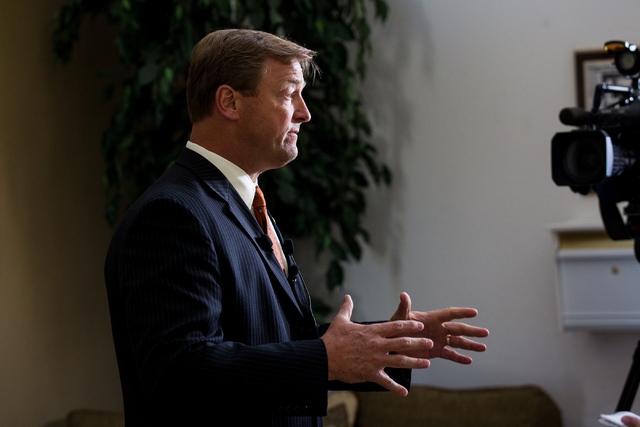Heller seeks federal help against quaggas mussels
WASHINGTON — Already this summer, inspectors have intercepted 24 boats headed to Lake Tahoe with troublesome quagga mussels and other invaders attached, Sen. Dean Heller said Wednesday in seeking more federal help to track and contain the hostile species.
Over the Fourth of July weekend, 725 boats were screened at four inspection stations surrounding the lake, a 17 percent increase from last year, Heller told senators as he pitched a bill that would add the quagga mussel to the federal list of invasive species meriting deeper collaboration with states to prevent their spread.
“A lot of great work is currently being done on the ground to prevent the spread of quaggas, but the problem is not going away,” Heller said.
The Nevada Republican was backed by state wildlife Director Tony Wasley at a hearing called by the Subcommittee on Water and Wildlife.
The quagga mussel “could devastate Tahoe’s fragile ecosystem and native fisheries, impact boats and reaction areas and cost the Tahoe Basin more than $20 million annually,” Wasley told senators.
The quagga already has wreaked havoc at Lake Mead, clogging pipelines and marine equipment and damaging watercraft since it was detected in 2007. The Bureau of Reclamation spends $1 million annually just on quagga mitigation.
There is no way to eradicate the pest, but since the thumbnail-sized creature hitchhikes by attaching itself to recreational boats or traveling in their bilgewater, authorities have tried to prevent its spread by increasing inspections at decontamination stations.
Steve Guertin, deputy director of the Fish &Wildlife Service, told senators the Obama administration does not object to adding the quagga mussel to the federal list. But he said it opposed the Heller bill because it would exempt public water systems from prohibitions that would take effect in the law.
Heller said afterward that the exemption was added after discussions with the Southern Nevada Water Authority and other regional water authorities. He said the aim was to make the bill “as amenable as possible to get something done.”

















